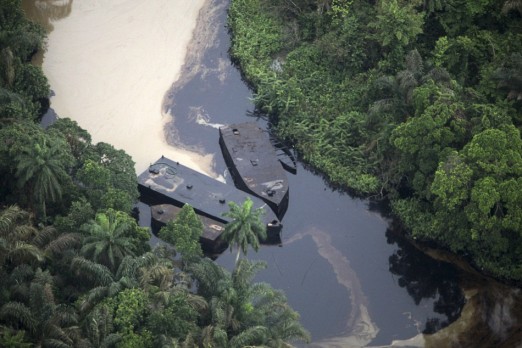Estimated $6.8 billion lost yearly to oil theft
Losses from oil theft, its economic impact on Nigeria

The constant threat of oil theft drives away potential investors, who think twice before diving into a market fraught with such risks. Who wants to invest in an environment where the very resources being mined are at constant risk of theft?
Admin I Monday, July 01, 2024
LAGOS, Nigeria – Oil theft in Nigeria has become very rampant, causing staggering economic losses with rippling effects that are hard to imagine. It’s a scary scenario that’s been hitting the country hard, like an invisible monster stealing its hard-earned wealth.
The impact is devastating, with consequences that are often overlooked. Prepare for a deep dive into the dark and dangerous world of oil theft and its chilling effect on the Nigerian economy.
The magnitude of oil theft in Nigeria is astonishing, with criminals bold enough to pilfer crude oil right from the nation’s pipelines. It’s like a real-life heist, but instead of fancy suits and elegant heists, Nigeria is dealing with brazen attackers and a bleeding economy.
Imagine waking up to discover that the precious resource, Nigeria ‘s golden egg, is being stolen before our very eyes. That’s the brutal reality Nigerians face every day. The losses incurred are staggering, with estimates suggesting billions of dollars’ worth of crude oil are stolen annually.
Yes, you read that right—billions! It’s like a black hole swallowing up the country’s hard-earned money, puffing it into thin air. The figures are startling, with some experts estimating losses of up to 400,000 barrels of oil per day.
To put a number on it, that’s a potential loss of up to $6.8 billion a year, just like that! Imagine what that kind of money could do for the country’s development and people’s well-being.
The impact of this thievery goes beyond the mere financial. There are environmental consequences, too, with stolen oil often dumped into the pristine waters, causing untold damage to marine life and the ecosystem. It’s a deadly blow to the very foundation of the country, impacting everything from the economy to the health and well-being of the populace.
But who’s behind this insidious crime? It’s a complex web of Dodgy characters, including sophisticated criminal networks, militant groups, and even some public officials who are supposed to protect it – It’s a conspiracy theory come true. These thieves employ various sophisticated methods, from tapping into pipelines to shipping the stolen goods abroad. It’s an international crime ring, with the stolen oil finding its way into global markets, sometimes ending up in the most unexpected places.
The extent of the issue became alarmingly clear recently when the country’s president ordered a military operation to tackle the menace. The audacity of these thieves knows no bounds, and something must be done to protect the nation’s resources and economy. This is no regular street crime; it’s a full-blown war against the nation’s economic stability.
But why is it so prevalent? Well, it’s big money. Crude oil is a precious commodity, and with high demand comes even higher rewards. Criminals stand to gain enormous profits from this illicit trade, which fuels further crimes and endangers the lives of Nigerians. It’s a vicious cycle that’s hard to break, like a cursed treasure that brings nothing but trouble.
The curse of oil theft hurts the economy in many ways. Firstly, it denies the country much-needed revenue. Every dropped barrel of oil is money down the drain, money that could’ve funded vital infrastructure projects, improved public services, and boosted the country’s development. It’s like a silent tax on the nation’s progress, stealing funds that could’ve transformed lives and communities.
Furthermore, the constant threat of oil theft drives away potential investors, who think twice before diving into a market fraught with such risks. Who wants to invest in an environment where the very resources being mined are at constant risk of theft? It’s a scary prospect for outsiders, and many businesses could think twice before sinking their money into such an unpredictable venture.
Also, the impact on the environment is devastating, with oil spills and dumping causing immense pollution. Fisherfolk and farmers suffer the brunt, as their livelihoods are shattered. The health of Nigerians is also at risk, with contaminated water sources and a increased risk of illnesses. It’s a nasty blow to an already fragile ecosystem, and the effects could linger for decades.
But Nigerians are fighting back! The government has begun taking decisive actions, with increased security measures and involvement from the military. They’re not messing around anymore. President Bola Tinubu has been working tirelessly to curb this menace, bringing in some much-needed accountability.
Other stakeholders are also stepping up. Oil companies are collaborating with security agencies to implement robust security strategies. The message is clear: They’re not going to let these thieves run amok and steal the country’s future.
Community engagement is also crucial, with local groups and leaders playing a vital role in reporting suspicious activities. It’s a collective effort to save the nation’s economic integrity.
There’s light at the end of the tunnel, but this complex issue needs sustained attention. It won’t be an easy fight, but Nigerians are resilient and determined. With the world watching, the government has an incentive to act swiftly and protect its precious resources.
In conclusion, oil theft in Nigeria is a vicious scourge that haunts the country’s economy, environment, and social fabric. Its impact is deeply troubling, but the nation is fighting back with vigor.
It’s time to sit up, pay attention, and support the government’s efforts to reclaim these resources. Nigerians deserve a fair chance at benefiting from their natural wealth, and it’s about time the oil theft nightmare ended. Oil theft in Nigeria is a continuing crisis that deserves the world’s attention.

